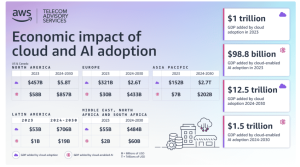From a credit score point of view, Americans have fared exceptionally well during the pandemic. Since the start of the pandemic, Americans’ average Fair Isaac Corp (FICO) credit scores increased by eight points to 716.
The increase came as the government doled out trillions of dollars through stimulus programs and relief measures, coupled with consumers cutting back on spending partly because of coronavirus restrictions and business shutdowns.
That allowed many people to pay off existing debts and temporarily stop taking on more debt to finance their spending.
But many of those stimulus measures — including enhanced unemployment benefits, the eviction moratorium and the student loan repayment pause — have already ended or soon will.
On top of that, inflation levels are at a 31-year high. Americans are paying more for just about everything from gasoline to groceries — which increased by 6.1% and 1.0% last month compared to September, respectively, and are up nearly 50% and 5.4% since last October.
That could wipe away some of the improvements Americans made to their credit scores over the pandemic if consumers, for instance, have to choose between paying for everyday expenses like food and making debt payments on time.
To understand more about how inflation could affect Americans’ credits scores, MarketWatch spoke with FICO’s
FICO,
CEO William Lansing.
MarketWatch: Were you surprised that credit scores hit an all-time high during the pandemic when unemployment was so high and much of the economy was locked down?
William Lansing: It was a little mystery and I think everyone was surprised. I was a little less surprised than some others. I didn’t think we’d have a V-shaped recovery but I didn’t think it was going to be a long drawn-out recovery as was being predicted.
MW: How do you think rising inflation will affect Americans’ credit scores? Could it depress the national credit score average if inflation keeps rising?
WL: Inflation by itself, at least at these levels, is not going to have a significant impact on the overall national credit score.
But if prices outstrip income and people wind up taking on more debt — that obviously would have an impact on their FICO credit score. There’s also a seasonal component — typically in the fourth quarter around holiday time consumers take on more debt. So we could see a modest downtick from that.
MW: What about inflation combined with the fact that many stimulus relief measures that were in place when credit scores hit a record high are no longer in place?
WL: Of course that could have an impact.
The input into the score is outstanding debt loads. Anything that causes consumers to take on more debt than they have right now is going to influence the score downward.
“‘Anything that causes consumers to take on more debt than they have right now is going to influence the score downward’”
— FICO CEO William Lansing
MW: Rising inflation is also bolstering the case for the Federal Reserve to raise interest rates from the current near-zero levels. That of course will make it more expensive for individuals to borrow money. How do you see that impacting credit scores, if at all?
WL: These things play out over long time frames. One hopes that consumers are sufficiently responsible — that they dial [the amount of debt they take on] back as they see their interest expense rising. But as a theoretical matter, it absolutely could [lower credit scores].
MW: The overall increase in credit scores during the pandemic has primarily been driven by consumers who had a credit score below 600 (in general, a FICO score between 670 and 739 is considered good, while anything below 580 is considered poor).
“‘People who are financially pressed and wind up taking on more debt are more likely to wind up with more pressure on the score’”
— FICO CEO William Lansing
Consumers who fell into the low-scoring category had, on average, a 581 credit score back in April 2020. But by April 2021 those scores jumped to 601, on average. Meanwhile consumers in higher scoring categories saw little to no movement in credit scores on average.
Do you think that the lower-scoring group is more likely to get hurt by rising inflation and therefore drive credit scores down?
WL: That’s a fair speculation. People who are financially pressed and wind up taking on more debt are more likely to wind up with more pressure on the score.
MW: Instead of making purchases with a credit card, a growing share of Americans are choosing to pay for goods in installments through “buy now pay later” platforms such as Klarna, Affirm
AFRM,
and Afterpay
APT,
But when consumers pay installments on time it doesn’t get factored into their credit scores as opposed to on-time credit-card payments, which would.
Do you think Americans’ credit scores could be higher if they didn’t use BNPL as much?
WL: There’s no question that your score is driven by credit card payment data for the most part. So if you don’t have a score, using a credit card will help you to get a score. If you have a score and you want to improve it, good behavior around paying off credit card bills in a timely manner helps [boost your credit score].
“‘There’s no question that your score is driven by credit card payment data for the most part’”
— FICO CEO William Lansing
MW: Do you think the habits that more Americans developed during the pandemic in terms of paying off credit card debt and being a little bit more responsible about spending can continue?
WL: I don’t know if it’s related to the pandemic or just part of an overall trend, but what we see is an increase in financial literacy. And we’re very supportive of that.
The whole thing with a credit score is it shouldn’t be a “gotcha”. It’s really just a measure of how risky you are. If you can demonstrate more responsible behavior then you get a better score and you get better rates and access to more debt.
This post was originally published on Market Watch





